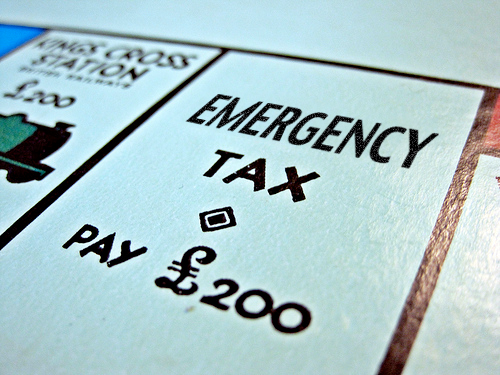There are certain circumstances where an employer or pension provider does not have enough information to work out how much tax you should pay.
This can include situations such as:
- You have just started a new employment and the employer has not received a tax code or information about your last job through forms P60 or P45.
- You have previously been self employed and this is your first employment. HMRC may not have issued a tax coding notice for you yet.
- Your employment provides benefits in kind, which need to be calculated into your tax code - or you receive a state pension.
The tax code issued in an emergency tax scenario is equivalent to the basic personal allowance for people under 65 (or born after 5th April 1948 from 2013).
This is to make sure you receive at least the minimum tax free personal allowance whilst your actual code is calculated.
For the last few years this would be:
- For 2013/2014 the emergency tax code is either 944L W1 or 944L M1.
- For 2012/2013 the emergency tax code was either 810L W1 or 810L M1.
- For 2011/2012 the emergency tax code was either 747L W1 or 747L M1.
Sometimes HMRC may deem you should have no personal allowance and can apply a zero personal allowance tax code. The following codes apply depending upon your income level:
- BR - All income from your employment/pension is taxed at basic rate. This is used in the same scenarios as above, but when you have more than one employment/pension or when you start your first job (no previous employment) and your employer is waiting for a tax code from HMRC.
- D0 - All income from your employment/pension is taxed at higher rate. This is used in the same scenarios as above, but when you have more than one employment/pension or when you start your first job (no previous employment) and your employer is waiting for a tax code from HMRC.
Once your employer has received the correct tax code from HMRC, it should account for any tax overpaid or underpaid due to the emergency tax code being used. However in some cases it is possible that by the end of the year, the total tax paid across your employments is more than it should be. In these cases you can make a claim for a tax refund.
You can read more about tax codes in our tax code guide
You can calculate your tax taking into account any valid tax code, and see a breakdown of your tax code using our income tax calculator.
For more than one employment, check your tax using our tax comparison calculator.

